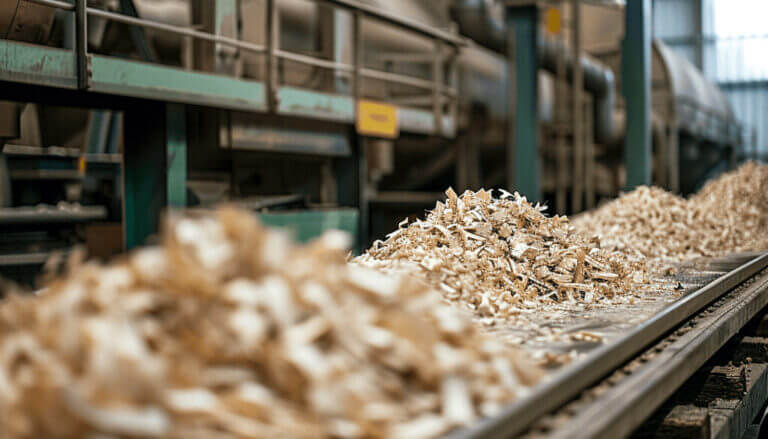What requirements must export pallets meet?
In an era of rapid growth in international trade and globalization, companies transporting goods must ensure that their export pallets meet appropriate standards. One of the most important requirements that export pallets should meet is compliance with the international ISPM 15 standard.
The main purpose of the ISPM 15 standard is to protect forest resources from invasive pests that can be carried by wooden packaging, including pallets. The effect of this standard is to protect the environment and ensure safety in the international exchange of goods.
ISPM 15 – what is it and why is it important?
ISPM 15 (International Standards for Phytosanitary Measures No. 15) is a set of international phytosanitary standards that regulate the requirements for wooden packaging used in international trade. The standards are designed to prevent the spread of plant pests and diseases that could threaten native ecosystems in importing countries.
The ISPM 15 regulations cover a wide range of packaging made from wood, such as pallets, crates, cages, drums or dunnage wood, which can carry harmful organisms. However, they do not apply to wood materials processed in a way that eliminates phytosanitary risks, such as:
- plywood, particleboard, OSB and veneer – because the wood is shredded in the manufacturing process, which eliminates possible pests,
- Wood with a thickness of 6 mm or less,
- Decorative packaging (e.g., for wine or cigars) made from recycled wood,
- Sawdust, shavings and wood wool.
BosPal’s products, including pallets and crates, are manufactured to meet ISPM 15 requirements, and the processed wood from which they are made exempts them from the need for additional phytosanitary treatment.
ISPM 15 requirements for export pallets
In order for a pallet to be used for international transport, it must undergo the appropriate treatment and labeling processes. These include:
- Heat treatment (HT) – wood used for pallets must be heat treated at a minimum of 56°C. This process requires that a temperature of 56°C be reached in the wood core for a minimum of 30 minutes. This treatment effectively eliminates pests that could threaten vegetation in importing countries.
- IPPC marking – every pallet that meets ISPM 15 standards must be marked with the IPPC (The International Plant Protection Convention) mark, which confirms compliance with phytosanitary requirements. The mark contains information about the country of production, the manufacturer’s registration number and the type of treatment used.
Why is ISPM 15 important in exporting?
Compliance with ISPM 15 significantly facilitates the transportation of goods in international trade. It is particularly important in countries such as the U.S., Canada, Japan and Australia, which apply strict phytosanitary regulations to protect local ecosystems.
The use of ISPM 15-compliant pallets avoids problems such as:
- Detention of cargo at the border – lack of proper markings or treatment of wood may result in withholding of transport.
- Refusal to accept the goods – if local phytosanitary requirements are not met.
- Send the goods back to the shipper – which generates additional costs and delays.
The use of pallets that meet ISPM 15 standards minimizes the risk of logistical problems and facilitates the management of international transportation.
Benefits of using ISPM 15 compliant pallets
The use of ISPM 15-compliant pallets brings many benefits to companies and the environment:
- Reduced risk of delays – ISPM 15-compliant pallets are accepted worldwide, minimizing the risk of stops in transit.
- Environmental protection – heat treatment eliminates pests, which contributes to the protection of forest resources.
- Better logistics flexibility – ISPM 15-compliant pallets can be freely used for international transport, regardless of the destination country and specific phytosanitary requirements. This allows companies to plan and execute supply chains more efficiently.
Pressed wood pallets – an alternative to traditional wooden pallets
Choosing the right pallets is crucial in international transportation. BosPal offers pallets made of pressed wood, which are a convenient alternative to traditional wooden pallets. Due to the production method, these pallets automatically meet phytosanitary standards and do not require heat treatment or fumigation. They are ready for export as soon as they are manufactured, making them an especially attractive solution for companies exporting their products on a large scale.
Summary
ISPM 15-compliant export pallets are not only a legal requirement, but also a solution to facilitate the international transportation of goods. Compliance with ISPM 15 reduces the risk of logistical problems, promotes environmental protection and improves international trade. Choosing pallets that comply with this standard helps minimize the risk of problems during transportation and contributes to a more efficient supply chain.




